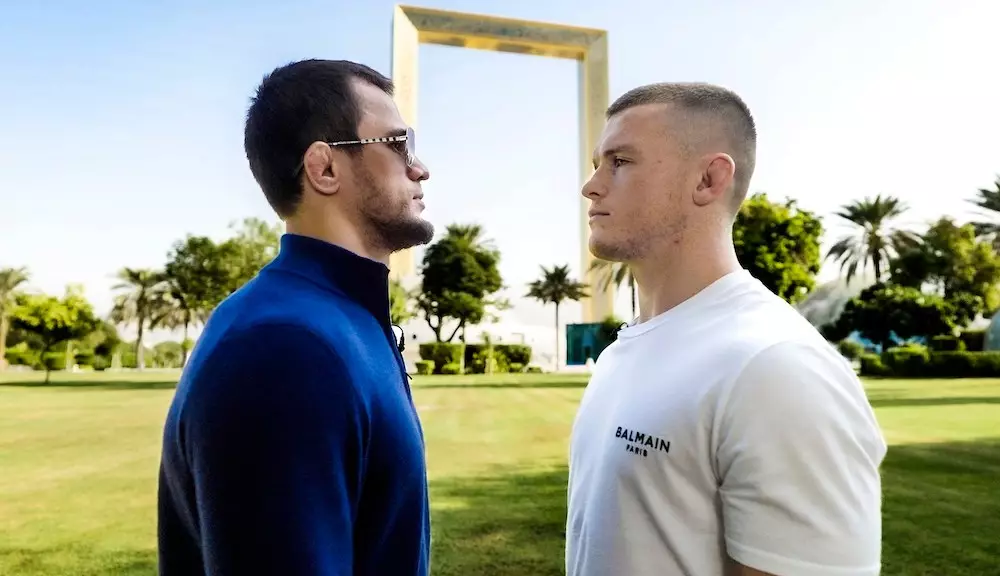In the ever-evolving world of mixed martial arts (MMA), national pride often plays a central role in shaping perceptions and rivalries. Khabib Nurmagomedov, a titan of the sport and a symbol of Dagestani combat prowess, has made it clear that he believes the quality of Irish fighters does not measure up to those from his native land. As Usman Nurmagomedov, Khabib’s cousin, prepares to defend his lightweight title against Paul Hughes in the upcoming Bellator Champions Series on January 25, the conversation surrounding regional capabilities in MMA has reignited. While the storied rivalry between Khabib and Irish fighter Conor McGregor was once the defining narrative of their respective regions, Khabib’s recent comments suggest that he finds it tiresome to draw comparisons that, in his view, inaccurately portray the strength of Irish MMA.
Khabib’s assertion that “Ireland don’t have fighters” may come off as inflammatory to some, but it stems from his exposure to a robust ecosystem of talent nurtured in Dagestan. Beyond the short list of recognized Irish fighters like McGregor and Hughes, Khabib argues that the depth of talent from Dagestan continues to flourish impressively. This claim holds merit when considering Dagestan’s rich history of combat sports and the rigorous training regimens that its fighters undergo. In contrast, he insinuates that Ireland lacks comparable infrastructure, networks, and opportunities in MMA, leaving emerging talents with fewer avenues for development. The pride that Khabib exudes for his homeland reflects not merely a personal bias but an understanding formed through years of involvement with the sport.
Since his retirement in 2020, Khabib has transitioned seamlessly from a fighter to a mentor, guiding a new generation of fighters from Dagestan. With his focus on coaching Usman Nurmagomedov, Umar Nurmagomedov, and others, he emphasizes cultivating their skills and navigating the competitive landscape of MMA. This mentorship role provides Khabib a unique perspective on the caliber of fighters emerging from his region and highlights the disparity he perceives when comparing them to Irish athletes. His coaching philosophy—rooted in discipline and an unyielding work ethic—sets a standard that he believes is unparalleled, allowing him to differentiate the Dagestani approach to combat sports.
While Khabib’s opinions can strike a contentious chord, they spotlight the broader narrative of national identity in a global sport. His critiques are not without potential repercussions; they may foster resentment among Irish fans and fighters alike. Nevertheless, it is crucial to recognize that such rivalries can enhance the sport by igniting passion and competitiveness, and invigorating narratives that keep audiences engaged. However, they should also be approached with sensitivity, as the fabric of MMA weaves together diverse cultures and histories.
Khabib’s insights on the hierarchy of fighters invite rigorous discussion but also beg for deeper examination of the complexities of nationality, talent, and the evolution of MMA. Ultimately, his confidence in Dagestan’s fighters reiterates an ongoing conversation about excellence, training, and the future of martial arts in a global arena.

